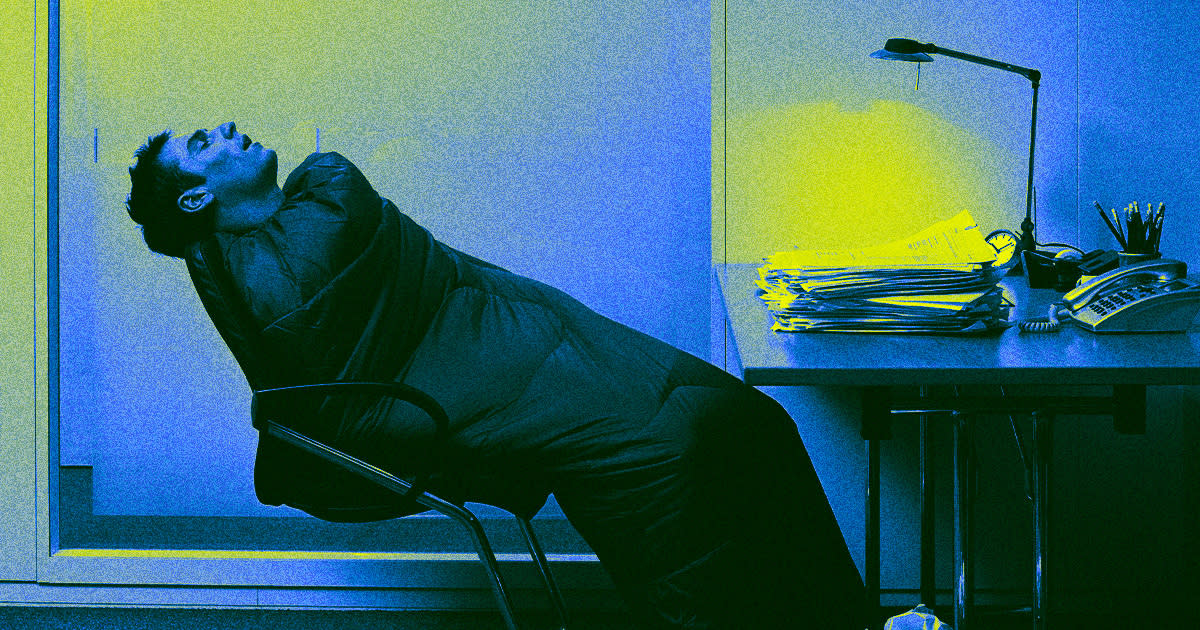Neuralink-Linked Startup Working on Tech So You Can Keep Working While You Dream

Work from Dome
For those of you for whom the grind never stops, the tech startup Prophetic is offering an unusual device that supposedly lets you work while you sleep — because when else are you supposed to get your side hustle in?
Called "Halo," it's a thick headband that Prophetic says is able to induce lucid dreams, the kind of dreams in which you're aware that you're dreaming and thus potentially able to take control of.
They can make for memorable if not life-changing experiences for some. But rather than wasting your time and dream power exploring your subconscious mind, Prophetic wants you to take lucid dreams by the reins and try being productive with them for a change.
Practicing speeches, running through math problems, or visualizing the elusive ending of your novel that you've given up on three times — you could do potentially anything. After all, "the limiting factor is your imagination," Eric Wollberg, founder and CEO of Prophetic, told Fortune.
Sleep Geek
The headband is designed by Afshin Mehin, the same guy behind Neuralink's N1 brain implant. It works by releasing focused pulses of ultrasound waves straight into a region of your brain associated with lucid dreams. It also targets regions involved in decision-making processes so that when a lucid state is induced, you'll have better odds of controlling it.
"Control is what we want," Wollberg told Fortune.
But some experts aren't so sure about the Halo headband. "It's just not that simple," Antonio Zadra, professor of psychology at the University of Montreal, told Fortune.
The science is unclear on whether this form of technology, known as transcranial focused ultrasound (TUS), is actually effective at inducing lucid dreams.
Even if it is, there's other drawbacks. Zadra said that sleepers who used lucid dream tech tended to either forget they were dreaming or get too excited and wake up. There's also no guarantee of controlling a dream, and even lucid dream pros struggle to regularly pull it off regularly. It's a skill that needs to be learned and honed.
Wollberg argues that some studies have shown that the extra brain stimulation provided by TUS technology does boost people's ability to gain dream control, and claims that the company is waiting on more data next year that will help its scientists further fine-tune the devices to the precise ultrasound frequencies needed.
At any rate, if using dreams for squeezing extra productivity in doesn't sound like a nightmare to you, Wollberg says you can expect Halo devices to hit the shelves sometime in 2025, costing between $1,500 and $2,000 each.
More on weird sleep tech: Startup Shows Off Pillow That Detects Snoring and Automatically Adjusts Your Head

